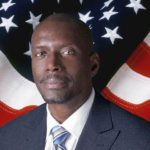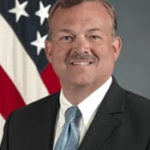
Dr. Sujata Shetty
Sujata Shetty is Interim Director of the Jack Ford Urban Affairs Center and a Professor in the Department of Geography and Planning, at the University of Toledo. She has worked as an architect and urban planner concentrating on community-based planning, research and evaluation projects. Her research explores the role of planning in marginalized and under-resourced communities from multiple perspectives, including land use planning, urban design, community development, and international development planning. Most recently, she has focused on the planning challenges in mid-sized cities in the U.S. industrial midwest, particularly cities facing population loss.


Dr. Peter Hammer
A professor at Wayne State University Law School, Peter Hammer is the director of the Damon J. Keith Center for Civil Rights. The Keith Center is dedicated to promoting the educational, economic and political empowerment of under-represented communities in urban areas and to ensuring that the phrase “equal justice under law” applies to all members of society. Professor Hammer was instrumental in editing and compiling Judge Damon J. Keith’s biography, Crusader for Justice: Federal Judge Damon J. Keith and is working with Emeritus Professor Edward Littlejohn on a biography of Judge George W. Crockett Jr. Professor Hammer has become a leading voice on the economic and social issues impacting the city of Detroit.
Dr. Pam Oatis
Pamela J. Oatis, MD, has been a Pediatrician for almost 30 years. She has served inner city families through the St. Vincent Mercy Medical Center Family Care Center in Toledo, Ohio for 25 years. She currently heads the Mercy Family Care Team which provides multiple services to children and families including connecting families to a medical provider to care for them and their child, palliative care for those who are complexly ill, and family counseling utilizing the principles of Hand in Hand. She also has served as the Medical Specialist for Ethics from 1990 to the present and chairs the Adult Institutional Review Board.


Dr. Hope M. Bland
Dr. Hope Bland is a native of Toledo, Ohio. Her passion for Social Justice has driven her to pursue her PhD in Human Services with a specialization in Diversity Studies and Social Work and Community Services at Capella University. She attended Wayne State University to receive a Master’s Degree in Social Work and she received her undergraduate degree in Social Work at The University of Toledo. Dr. Bland offers a systems approach to diversity and organizational leadership that yields positive and effective outcomes. As a collaborative strategist, Dr. Bland is able to work with others to design accessible systems and policies that support measurable diversity, inclusion and equity goals of the organization and monitor the progress of those efforts. Dr. Bland is currently serving in the role of Executive Director of Equity, Diversity and Inclusion for the Toledo Public School District, as well as an Adjunct Professor in the departments of Africana Studies and Social Work at the University of Toledo.
Aisha Sleiman


Ninah Sasy
Head of the Office of the Clean Water Public Advocate.
Ninah Sasy comes to the Office of the Clean Water Public Advocate with an extensive background in public health, emergency response, and strategic planning. Ninah is an innovative and strategic leader with proven success in driving operational excellence through transforming cultures, developing high performing teams, and administering statewide grant programs (upwards of $2M). She is committed to developing and implementing policies that positively impact families through the State of Michigan. Ninah is adept in identifying gaps in programs and formulating strategies that increase safety, quality, and service standards.
Evonda Haith
Evonda R. Haith is a Social Studies teacher at Southwest Guilford High School in High Point, N.C., as well as an Adjunct Instructor at North Carolina Agricultural & Technical State University (NCAT), Department of History & Political Science. The former Evonda Belinda Roland was born in Washington, NC to Velma and Cicero Roland who were farmers and teachers. Haith is a third-generation teacher and a third-generation graduate of NCAT. Haith began her work career as a third shift health care technician working with mentally and physically disabled children at Kendall Center in Greensboro, NC, while completing her undergraduate degree in Political Science at NCAT. Haith earned a M.S. degree in History Secondary Education. Haith has worn many hats and has a wide range of work experience along with her teaching career including her work experience as a Coordinator for the NC Department of Crime Control and Public Safety, Volunteers to the Court, and a Congressional Caseworker for the late J. Howard Coble, Greensboro District Office. Haith is a member of NCAE and ASALH. She has four adult children. She currently resides in North Carolina. In her spare-time, she holds study sessions for students who are preparing to take the Praxis II Social Studies (teaching) exam.


Dr. Nadia Gaber
Nadia Gaber received her PhD from the joint program in medical anthropology from UCSF and UC Berkeley, and is obtaining her MD at UCSF with support from the National Institutes of Health and Medical Scientist Training Program. Her research examines water as a social force through which contemporary biopolitics of race, economy and environment are being reworked. Aligned with grassroots struggles for safe and affordable water, she is a proud member of We the People of Detroit’s Community Research Collective and the People’s Water Board Coalition in Michigan.
Emily Kutil
Emily Kutil is a Detroit-based architectural designer, researcher, and Assistant Professor of Architecture at Lawrence Technological University. Emily is a founding member of We the People of Detroit Community Research Collective, a collaboration between community activists, academics, and designers mapping geographies of austerity in Detroit. She also coordinates Black Bottom Street View, an immersive representation of a historic Detroit neighborhood destroyed by urban renewal. Her current research investigates Great Lakes water and energy infrastructures and their entanglements with land, life, and systems of power. Emily holds a BSArch from the University of Cincinnati and a March with High Distinction and Certificate in Museum Studies from the University of Michigan.


Dr. Peggy Berry
Dr. Berry is a member of the Alliance of Nurses for Healthy Environments and the Ohio Nurses Association past chair and member of the Environmental and Public Health Caucus. Peggy has been advocating for clean air, access to potable water, chemical transparency with fracking solution, and methane regulation by congressional and state visits, press conferences and social media with and for the Alliance of Nurses for Healthy Environments, Ohio Environmental Council, Sierra Club, and Mom’s Clean Air Force. In addition to being the LWV Ohio volunteer lobbyist, she has been an environmental advocate since 2012, participating in EPA and OSHA requests for testimony on chemical transparency and Methane New Source Rules, collaborating across many NGO to promote clean water, air and tillable soil. She has presented and published on the human health effects of workplace bullying, climate change and research design.
Roger Colton
Roger Colton is a partner in the firm Fisher, Sheehan & Colton, Public Finance and General Economics (FSC) of Belmont, Massachusetts. An attorney and an economist, Roger engages in legal and technical research, program design and program evaluation. His work on helping to design, implement and fund low-income affordability programs has been with state and local governments; with the federal government; with natural gas, electric and water utilities; and with a variety of community-based organizations in more than 35 states and four Canadian provinces. Roger has engaged in large national studies of water affordability issues, as well as authors the annual Home Energy Affordability Gap. He was appointed to the Blue Ribbon Panel on Water Affordability by the Detroit City Council in 2017, and worked with Food and Water Watch to help design and gain enactment of a water affordability program in Baltimore. He is currently working on water affordability issues in the Cities of Buffalo, Philadelphia and Pittsburgh. Outside of his professional work, Roger is chairs the municipal climate action committee for his local community (Belmont MA), writes a biweekly column (called Community Conversations) for the weekly local newspapers (Belmont Citizen-Herald), and is an avid juggler.


Ian Robinson
Rianna Eckel
Rianna Eckel is the Senior Maryland Organizer with Food & Water Action. Based in Baltimore, she works with Marylanders to ensure that everyone has access to safe, affordable, public drinking water, to reform factory farming on the Eastern Shore, and to stop our climate crisis. Before joining Food & Water Watch, Rianna completed Green Corps, a training program for environmental organizing. She organized around federal legislation to stop the overuse of antibiotics in factory farms in Colorado, to label GMOs in New York and ran a voter registration office in North Carolina. Rianna graduated from American University with two degrees, a B.A. in environmental studies and a B.A. in international studies.


Michael Harris
Michael is a partner with the Flint Development Center(flintdc.org), U.S. Army veteran, UAW/GM member and community organizer. Michael attended the University of Michigan as a political science major and is a lifelong Flint Michigan resident. He currently serves as CEO of Flintball and Founder of The Mckenzie Patrice Croom Flint Community Lab. Michael has served as President of The Greater Flint African American Sports Hall Of Fame(GFAASHOF.ORG), Chair of the Genesee County Democratic Black Caucus and Chair of the NAACP ACT-SO program. He is a delegate to the Michigan Democratic State Central Committee.
General Michael McDaniel
Brigadier General (ret.) McDaniel is currently Director of Homeland Security (HS) Law programs and a Campus Dean at WMU-Cooley Law School. He has focused on critical infrastructure protection and remediation as Deputy Assistant Secretary for Homeland Defense Strategy, Prevention and Mission Assurance and as Michigan’s first Homeland Security Adviser. He served as program manager for the lead service line replacement programs in Flint and led review of Lansing’s critical infrastructure.

Copyright 2025 Freshwater Future. All Rights Reserved.